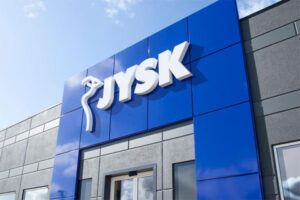Retail parks are booming in Europe: According to a study by Cushman & Wakefield, 1.3 million sq m of new retail space will be added in retail parks by the end of 2016. The area of newly-built retail parks in Europe will thus more than double compared to the space created in 2015. This is no surprise to Thomas Fastenrath, CEO of Wisag Service Holding Europe GmbH.
“Retail parks are very popular with customers and retailers. The wide range of shops appeals to consumers and tenants benefit from lower rent and utility costs. One must be mindful, however, not to sacrifice services that visitors and tenants deem important on the altar of excessive cost consciousness.”
Operators often dispense with info points, for example, which are common in shopping centers. Visitors have a need for information, however, and turn to whomever they find—such as building technicians or cleaners working in facility management (FM).
“We have repeatedly received feedback from our employees that retail park visitors often approach them with a variety of concerns. We wanted to get to the bottom of this and therefore commissioned a study by the market research company GfK” Fastenrath explained. From May to June 2016, FM-employees in 11 selected retail parks recorded what concerns visitors, store employees, and suppliers had for them.

What interests visitors
The FM staff documented 821 requests. Their topics ranged far beyond the professionals’ actual job descriptions. They act as guides, telephone operators, lost property office attendants, complaint department employees, and, when necessary, even as security guards—in short: Visitors see the technicians as walking information points and contact them whenever they require information or assistance. This is significantly more frequent in retail parks without on-site management or other points of contact for customers.
By far the most numerous individual requests came from customers and visitors to the respective objects. They directed a total of 276 inquiries to FM staff during the survey period.
The most frequently asked question, at approximately 32.2%, was about the location of certain facilities within the retail park. Being able to orient themselves quickly is an important need for many customers, and so they often inquired about the location of individual stores, the toilets, the parking lot, or an ATM. Asking for concrete assistance was the second-highest priority among consumers: 22.8% of questions were filed as requests for “general services.”
The FM staff were asked, for example, to help get a coin out of a shopping cart deposit holder or to help a customer find her car. Questions and concerns about issues in the areas of the individual retailers or the center management, such as the runtime of special offers or the available product range, accounted for 18.1% of the requests.

Criticisms expressed to technicians, too
When it comes to critical statements, rather than those purely regarding information, the threshold is naturally higher. The fact that visitors overcome their hesitancy to complain to a technician shows what topics are most acutely on customers’ minds.
The leader in this category, with 58.2% of a total of 153 entries, was the state of the park and its grounds. The technicians heard both praise, like “everything was very neat and tidy,” and criticism, such as about moving walkways that were too slow, complicated locking mechanisms in disabled toilets, or a lack of resting areas and mobile phone charging stations.
The retail centers’ tenants or their staff turned directly to the technicians exactly 191 times. There is an apparent need for greater transparency in terms of information policy and responsibilities—the topics ranged from fire doors in the warehouse, to interior lighting, to excessive noise during construction.
This sector accounted for 35.6% of the questions. Again and again, shopkeepers asked technicians for assistance with matters such as unloading goods, borrowing a ladder, or changing lightbulbs (26.2%). In 21.5% of cases, they had very specific wishes regarding center technology—such as the demand for heat, better air quality, music, or problem-free WiFi reception. Noteworthy: 6.8% of the issues raised had nothing to do with the technician’s core tasks.

Information and service functions are important
The fact that the FM staff were actively used as contact points shows the considerable need for information and points of contact.
“Retail park owners and operators should pay attention to this fact. Customer contact points improve customers’ satisfaction during their stay in the center,” explained Anna Kozina, Key Account Manager for Shopping Centers at Wisag Facility Management. “But they need not be classic info points as in shopping centers. It would be more cost-conscious, for example, to use the FM staff already present in the center as official contact points.”
A procedure like those observed at international airports is conceivable: Employees there wear big “Please ask me” buttons, are equipped with iPads, and are available to answer guests’ questions competently. Is this a possible solution for retail parks?
Technicians wearing T-shirts that say “Please ask me” on the back and are available to customers for questions, comments, and information with a wider scope than they already are today?” I would find that a very interesting proposal,” said Kozina. She continued: “Visitors to retail centers would experience a significant increase in service and it would be a very cost-effective solution at the same time, with a bottom line that would benefit everyone.”





